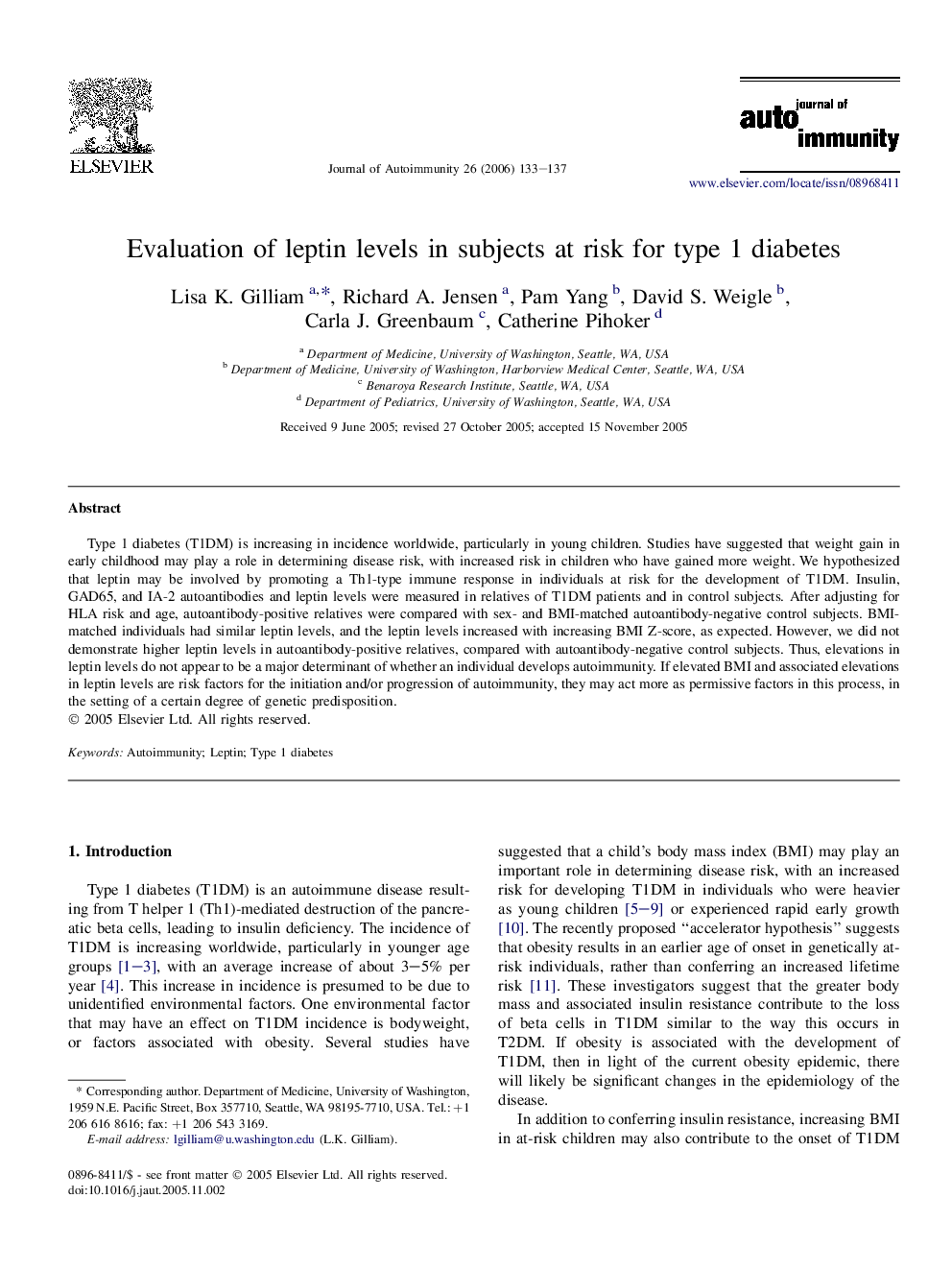| Article ID | Journal | Published Year | Pages | File Type |
|---|---|---|---|---|
| 3368595 | Journal of Autoimmunity | 2006 | 5 Pages |
Type 1 diabetes (T1DM) is increasing in incidence worldwide, particularly in young children. Studies have suggested that weight gain in early childhood may play a role in determining disease risk, with increased risk in children who have gained more weight. We hypothesized that leptin may be involved by promoting a Th1-type immune response in individuals at risk for the development of T1DM. Insulin, GAD65, and IA-2 autoantibodies and leptin levels were measured in relatives of T1DM patients and in control subjects. After adjusting for HLA risk and age, autoantibody-positive relatives were compared with sex- and BMI-matched autoantibody-negative control subjects. BMI-matched individuals had similar leptin levels, and the leptin levels increased with increasing BMI Z-score, as expected. However, we did not demonstrate higher leptin levels in autoantibody-positive relatives, compared with autoantibody-negative control subjects. Thus, elevations in leptin levels do not appear to be a major determinant of whether an individual develops autoimmunity. If elevated BMI and associated elevations in leptin levels are risk factors for the initiation and/or progression of autoimmunity, they may act more as permissive factors in this process, in the setting of a certain degree of genetic predisposition.
